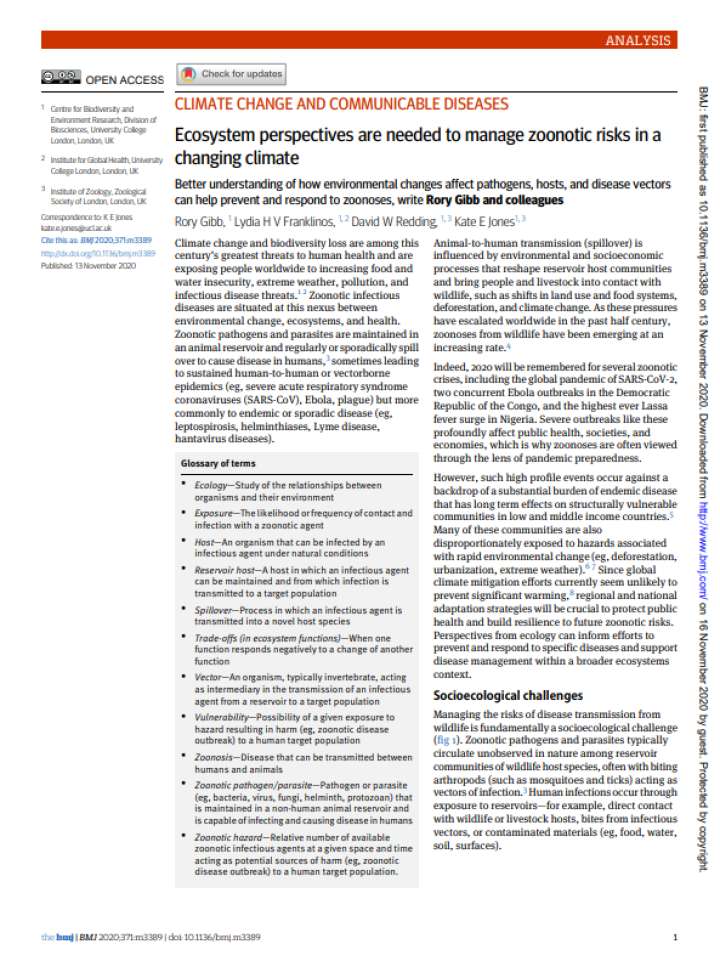Ecosystem perspectives are needed to manage zoonotic risks in a changing climate
This paper shows how better understanding of the way environmental changes affect pathogens, hosts, and disease vectors can help prevent and respond to zoonoses.
A challenge to integrating ecological knowledge into decision support is the lack of understanding and data on key biological, ecological, social, and geographic features of many zoonoses and their reservoir hosts (including for priority diseases such as viral hemorrhagic fevers). Tackling this requires integration of knowledge, evidence, and research programs across ecological, social, and health domains.
Integrating ecological perspectives on zoonoses into national and regional public health action plans, as well as other policy sectors dealing with climate adaptation (eg, agricultural policy) would be a step toward reducing the global burden of zoonoses while building broader health resilience to the effects of climate change and filling the gaps in data and improve programs to prevent and control infectious disease.
Find here the key recommendations of the paper:
- Climate and land use change are likely to significantly influence hazards of many zoonoses
- How these translate to changes in risk will be determined by socioecological and economic contexts that shape human exposure and vulnerability
- Policy makers should incorporate ecological understandings of zoonotic disease into health and environmental planning to help evaluate disease-risk trade-offs, prioritize interventions, and build wider health resilience to climate change
- Integration of research design across health, social, and ecological disciplines can provide clearer understanding of how environmental changes are reshaping zoonotic risks and inform forecasting
Explore further
